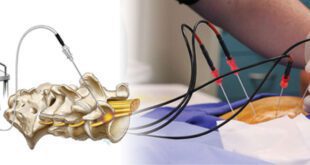 August is Breastfeeding Awareness Month and August 1-7 is World Breastfeeding Week. This year’s theme focuses on “Breastfeeding: Foundation of Life.” The week helps raise awareness of the importance of breastfeeding for both babies and mothers. According to the American Academy of Pediatrics, breastfeeding is the standard for infant feeding. It provides essential nutrients and antibodies that boost an infant’s immune system, providing protection from childhood illnesses. Babies who are not breastfed are more likely to develop common childhood illnesses like ear infections and diarrhea as well as chronic conditions such as type 2 diabetes, asthma and childhood obesity.
August is Breastfeeding Awareness Month and August 1-7 is World Breastfeeding Week. This year’s theme focuses on “Breastfeeding: Foundation of Life.” The week helps raise awareness of the importance of breastfeeding for both babies and mothers. According to the American Academy of Pediatrics, breastfeeding is the standard for infant feeding. It provides essential nutrients and antibodies that boost an infant’s immune system, providing protection from childhood illnesses. Babies who are not breastfed are more likely to develop common childhood illnesses like ear infections and diarrhea as well as chronic conditions such as type 2 diabetes, asthma and childhood obesity.
Breastfeeding is best for your baby for the following reasons:
• Breast milk has the right amount of fat, sugar, water, protein, and minerals needed for a baby’s growth and development. As your baby grows, your breast milk changes to adapt to the baby’s changing nutritional needs.
• Breast milk is easier to digest than formula.
• Breast milk contains antibodies that protect infants from certain illnesses, such as ear infections, diarrhea, respiratory illnesses, and allergies. The longer your baby breastfeeds, the greater the health benefits.
• Breastfed infants have a lower risk of sudden infant death syndrome (SIDS).
• Breast milk can help reduce the risk of many of the short-term and long-term health problems that preterm babies face.
How does breastfeeding benefit mom?
Breastfeeding is good for you for the following reasons:
• Breastfeeding triggers the release of a hormone called oxytocin that causes the uterus to contract. This helps the uterus return to its normal size more quickly and may decrease the amount of bleeding you have after giving birth.
• Breastfeeding may make it easier to lose the weight you gained during pregnancy.
• Breastfeeding may reduce the risk of breast cancer and ovarian cancer.
How long should I breastfeed my baby?
Exclusive breastfeeding is recommended for the first 6 months of a baby’s life. Breastfeeding should continue up to the baby’s first birthday as new foods are introduced.
What kinds of foods should I eat while breastfeeding?
The following tips will help you meet the nutritional goals needed for breastfeeding:
Your body needs about 450–500 extra calories a day to make breast milk for your baby. If your weight is in the normal range, you need about 2,500 total calories per day.
• Eat fish and seafood 2–3 times a week, but avoid eating fish with high mercury levels. Do not eat shark, swordfish, king mackerel, or tilefish, and limit albacore tuna to 6 ounces a week.
• Your health care professional may recommend that you continue to take your prenatal multivitamin supplement while you are breastfeeding.
• Drink plenty of fluids, and drink more if your urine is dark yellow.
Can I drink caffeine while breastfeeding?
Drinking caffeine in moderate amounts (200 mg a day) most likely will not affect your baby. Newborns and preterm infants are more sensitive to caffeine’s effects. You may want to consume a lower amount of caffeine in the first few days after your baby is born or if your infant is preterm.
Can I drink alcohol while breastfeeding?
If you want to have an occasional alcoholic drink, wait at least 2 hours after a single drink to breastfeed. The alcohol will leave your milk as it leaves your bloodstream—there is no need to express and discard your milk. Drinking more than two drinks per day on a regular basis may be harmful to your baby and may cause drowsiness, weakness, and abnormal weight gain.
How do I know if a medication is safe to take while breastfeeding?
Most medications are safe to take while breastfeeding. Although medications can be passed to your baby in breast milk, levels are usually much lower than the level in your bloodstream. The latest information about medications and their effects on breastfed babies can be found at LactMed, a database of scientific information, at www.toxnet.nlm.nih.gov/newtoxnet/lactmed.htm. If you are breastfeeding and need to take a prescription medication to manage a health condition, discuss this with your health care team and the health care professional caring for your baby.
Why is it important to avoid smoking and drug use while breastfeeding?
• Secondhand smoke from cigarettes is harmful to infants and children. It increases the risk of allergies, asthma, and SIDS. Smoking can decrease your milk supply and can make it harder for the baby to gain weight. Be sure not to smoke around the baby.
• Using illegal drugs, such as cocaine, heroin, and methamphetamines, and taking prescription drugs for nonmedical reasons can harm your baby if you use them while breastfeeding. And although marijuana is now legal in several states, its use is discouraged during breastfeeding. If you need help stopping drug use, talk with your obstetrician, lactation consultant, or other health care professional.
Source:
American College of Obstetricians and Gynecologists (www.acog.org)
http://www.health.state.mn.us
Check Also
Breaking Through the Pain: How the Stealth Laser is Revolutionizing Nerve Pain Treatment
Nerve pain, or neuropathic pain, is one of the most challenging conditions to treat in …
 Central Florida Health and Wellness Magazine Health and Wellness Articles of the Villages
Central Florida Health and Wellness Magazine Health and Wellness Articles of the Villages


